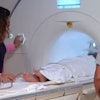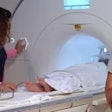Walz-Flannigan is a medical physicist who has spent a considerable amount of time working with radiologic technologists and equipment installations, learning about the issues they encounter with equipment. The work has led her to the realization that there is still much to do in terms of technique optimization and in changing how personnel use equipment.
With digital radiography (DR), image appearance can vary considerably due to image processing, Walz-Flannigan told AuntMinnie.com, and it can be difficult for radiologists and technologists to get to the bottom of image quality issues. The increasing complexity of DR systems makes this even harder.
Walz-Flannigan believes that better access to data is necessary to more accurately perform quality improvement in DR, and, to that end, she has been involved with a team at the University of Chicago that has designed a program that uses radiography analytics. The analytics data are paired with technologist knowledge of workflow and system dependencies, radiologist knowledge of desired image quality, and the knowledge that physicists have of how equipment works.
While information on rejects is important, it isn't sufficient, she believes. The University of Chicago program ties together reject rates and other factors into a universal, vendor-neutral program so that trends can be understood across platforms.
"Radiography exposure and image quality standardization can be tricky and time-consuming," Walz-Flannigan said. "Digital radiography, increasing system complexity, and trends toward making a push-button interaction for technologists make it difficult to work toward improvement without physics, and, as a physicist who has made the mistake before, it's essential to work closely with technologists to understand the workflow challenges and to be in a role of supporting them if you want to help optimize anything."


















